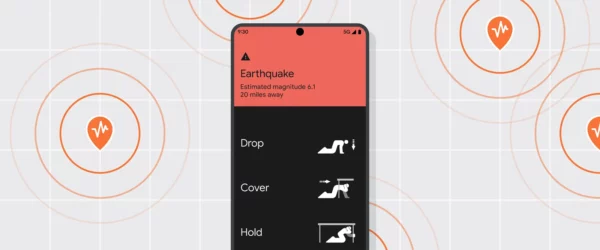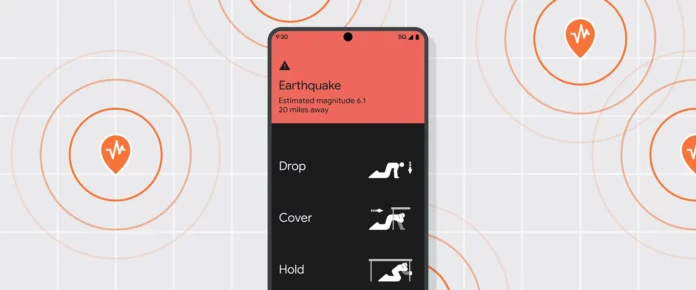Tech giant Google has admitted a critical failure in its Android Earthquake Alerts (AEA) system, revealing that it failed to issue crucial high-level warnings to nearly 10 million people ahead of the devastating 2023 earthquake in Turkey. This stunning acknowledgement comes almost two years after the twin quakes claimed over 55,000 lives and injured more than 100,000, raising serious questions about the reliability and transparency of widely adopted technological warning systems.
Despite being active and operational at the time of the initial 7.8-magnitude quake on February 6, 2023, Google’s system dramatically underestimated its severity. An internal investigation later confirmed that the AEA system initially registered the powerful tremor at a mere 4.5 to 4.9 on the moment magnitude scale, a significant deviation from its actual catastrophic force.
Consequently, only a paltry 469 people received the system’s highest-level “Take Action” alert. This alert, designed to override “Do Not Disturb” settings with a loud, intrusive alarm and full-screen display, is intended to provide precious seconds for users to seek safety before seismic waves arrive. With approximately 10 million people living within 98 miles of the epicenter, the vast majority were left without this vital early warning.
Instead, around half a million users received a lower-level “Be Aware” notification. This less prominent alert, meant for milder tremors, does not override device settings and would likely have gone unnoticed by most, especially given that the first quake struck at 4:17 AM while many were asleep. The absence of a jarring “Take Action” alert at such a critical hour could have had profound consequences for those trapped in collapsing buildings.

For months after the 2023 disaster, BBC reporters on the ground in the affected zones found no one who had received the more serious “Take Action” alert before the first tremor. Google had initially claimed its system “performed well,” a statement now revealed to be a stark misrepresentation of the system’s actual performance during the critical moments.
Google researchers have since published their findings in the journal Science, acknowledging “limitations to the detection algorithms” that were in place during the Turkey quakes. A revised simulation of the 7.8 magnitude quake, run with updated algorithms, produced dramatically different theoretical results: 10 million “Take Action” alerts and 67 million “Be Aware” notifications. This suggests the flaw lay fundamentally in the original software design’s ability to accurately gauge large-magnitude events in real-time.
“Every earthquake early warning system grapples with the same challenge—tuning algorithms for large magnitude events,” a Google spokesperson told the BBC. “We continue to improve the system based on what we learn in each earthquake.”
However, experts express concern over the significant delay in Google’s full transparency regarding these flaws. “I’m really frustrated that it took so long,” stated Elizabeth Reddy, assistant professor at the Colorado School of Mines. “We’re not talking about a little event – people died – and we didn’t see a performance of this warning in the way we would like.”
The incident also raises broader concerns about reliance on private tech solutions for public safety. Harold Tobin, director of the Pacific Northwest Seismic Network, questioned whether some countries might “make the calculation that Google’s doing it, so we don’t have to?” Google maintains its platform is intended to support, not replace, national alert systems.
The AEA system, which leverages accelerometers in Android phones to detect ground movement and is active in 98 countries (including Turkey, where Android devices make up over 70% of smartphones), has been updated since the 2023 quake. While Google positions it as a “global safety net,” the Turkey disaster serves as a sobering reminder of the complex challenges in developing reliable early warning systems, and the profound human cost when even the most advanced technologies fall short.
